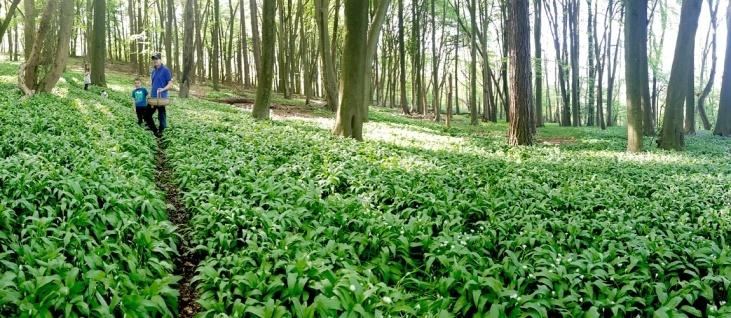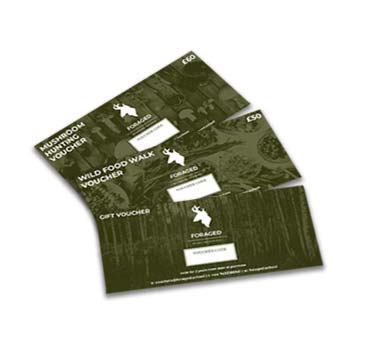Foraged™ Code of conduct and principles of practice.
This code of conduct is for both course attendees and teachers/assistants to follow to allow for maximum knowledge transfer safety and enjoyment of courses and events provided by Foraged™.
1. Our Principles
1.1 We understand that bushcraft and foraging activities are (through education) playing an increasingly important role supporting, promoting and defending the health of all plants, fungi, algae, animals (including humans) and the habitats/environments in which they exist.
1.2 We recognise the ecological interconnectivity of all species and seek to spread knowledge, understanding and best practices in a move towards more diverse and resilient food systems and land use.
1.3 We see humans as 'a part of nature' rather than 'apart from nature', and believe that it is only through engaging with nature in practical and meaningful ways that we can truly support it.
1.4 We are fully committed to minimal impact on the environment both locally and globally. Not just by our activities but also those that supply us. All food supplied to attendees will be wild and where we need to source externally produce will be organic and local. We do not support the use of GM products or industrial monoculture food production.
1.5 We believe that ‘Leave No Trace’ is an outdated mantra and although well meaning is not actually achievable when truly engaging with nature as a part it rather than apart from it. Instead, we use a mantra of ‘Positive Impact’ when decision making on how we engage with different environments.
1.6 We aim to teach a mindful and modern hunter-gatherer lifestyle including the regularity of eating meat. Course meal plans will be 90% vegetable and fungi based and 10% of the meals being animal protein. Eating meat 3 times a day is unsustainable and is not a practice found in the majority of indigenous cultures around the world. Attendees are free to bring whatever food they need to get the most from their course but we encourage attempting the more sustainable food choices we that practice.
2. Towards Best Practice
2.1 We share the same objective of Article 1 of the internationally ratified Convention on Biodiversity (1992): “The conservation of biological diversity, the sustainable use of its components and the fair and equitable sharing of the benefits arising out of the utilisation of genetic resources'.
2.2 In so doing, we work safely and within the law to develop knowledge and relationships between all interested parties to find best practices through shared experience, research and collaboration.
2.3 We recognise each individual species that is harvested and each location in which harvesting takes place requires its own set of skills. In this respect, it is impractical and undesirable to impose a comprehensive set of rules.
2.4 We undertake to observe how species respond to harvesting methods. Where a harvesting method is beneficial or neutral to a species and/or location we will share that knowledge among interested parties. Similarly, in the event of a particular harvesting technique proving detrimental to a species and/or location, we will alter our practice accordingly and share that knowledge also.
2.5 As our understanding of best practice with regard to species and locations is constantly evolving, so will this document. We welcome constructive, evidence-based discussion and dialogue on general principles, specific species and distinct locations with all interested parties.
3. Safety
3.1 We teach that it is essential to be 100% confident of identification before eating any species or using wild materials for a craft that could poison the user during use. If we are not sure ourselves, we are not afraid to admit it honestly and err on the side of safety.
3.2 Teachers and suppliers will take reasonable measures to understand and pass on relevant information on species edibility and allergy advice.
3.3 We never supply anything to eat that is not 100% correctly identified and, is regarded within current research, as safe to consume.
3.4 We stay well informed on current best practice and any peer-reviewed science relating to our activities and welcome research and experience-based opinion. 3.5 We believe that teaching the safe use of tools and equipment such as knives, axes, saws, cooking equipment, hygiene is paramount. Industry safety guidelines will be adhered to where they exist and in the absence of guidelines for other activities we will draw up our own with the well being of attendees and staff alike. Failure to demonstrate an understanding of safety guidelines will result in temporary removal of tool or equipment privileges until the course/event leader is satisfied that the attendee has gained an appropriate level of understanding.
4. Legality and Compliance
4.1 We will uphold the laws of the land that we conduct our activities regardless of which country and we undertake to know and abide by the relevant laws of the country.
4.2 Anyone working for or on behalf of Foraged™ undertake to act with a reasonable duty of care to those they teach. As standard, staff and suppliers have relevant, appropriate insurance, basic first aid and food hygiene certification (where appropriate), perform risk assessments, and make themselves aware of client’s allergies, medical conditions etc.
4.3 The suppliers we use undertake to uphold the law as it applies to foods. For example, where applicable, to hold the relevant food hygiene certificates for handling or catering and to carry public liability and professional indemnity insurance and prepare risk assessments.
4.4 Foragers and crafters making products from harvested species also undertake to abide by any relevant legislation specific to their produce and to carry relevant, appropriate insurance.
4.5 Staff and suppliers will be qualified for using specialist tools including, insurance, certification and industry group memberships where necessary. For instance chainsaw work will only be carried out by individuals holding a chainsaw ticket.
4.6 We teach about weapons for food procurement in an historical context to keep our ancestral heritage alive and maintain the knowledge of our past into the future. Use of these weapons under law is clearly explained and we do not use them to hunt unless permitted to do so.
5. Consideration
5.1 We teach that the interests of individuals and the species that they harvest are aligned, and that harvesting wild flora and fauna should always be carried out in ways that do not compromise future species populations or the biological communities of which they are apart.
5.2 Further to ecological considerations, when harvesting or teaching about harvesting, we also consider other interested parties (including other bushcrafters, foragers, foresters, conservationists & ecologists) that may value a species/location. Where possible we seek to open dialogue, collaborate and advance our understanding of species/locations, with a view to finding best practice and ecological understanding.
5.3 On sites that we run longer courses we create site-specific management plans and harvesting rotations where appropriate and/or needed.
5.4 We undertake that all species will be harvested using techniques that do not cause permanent or irrevocable damage to the colony, their future survival and the environments in which they exist.
5.5 On sites we manage diseased or structurally compromised trees will be identified through risk assessment and either taken down in high traffic areas or be the first to harvest for craft purposes and firewood. Dead standing wood will be left whenever appropriate for habitat.
5.6 Where we see outdoor living practices we know from experience and scientific research to be harmful or dangerous, we will respectfully challenge that behaviour through discussion and dialogue.
5.7 We will treat other outdoor practitioners with respect. Where we share a common public space, our activities may bring us into competition with each other, and where we overlap, we will do so with consideration for one another's livelihoods.
6. Student conduct
To aid you and fellow course participants in getting the most from your time with us we ask that you please:
6.1 Be punctual. Lesson/event times are to be adhered to and will start without you. If you are going to be late please get in contact and we will do our best to accommodate you.
6.2 Be attentive. We are always happy to recap and demonstrate the things we are teaching but no one appreciates having to cover old ground because of people not paying attention.
6.3 Be respectful. Rude and/or aggressive behaviour will not be tolerated.
6.4 Be responsible. Follow the instruction and do not put yourself or others at risk.
6.5 Remember to enjoy yourself. If for some reason you are not able to please speak up to staff and we will endeavour to resolve what is stopping you getting the most from your course.
6.6 Intoxication. Dry courses are run with zero tolerance for recreational intoxication and anyone found to be breaking this rule will be ejected from the course without refund. On courses that include alcohol consumption only the alcohol provided is to be consumed and only at the times set out in the lesson plan/timetable.
6.7 Smoking. Smokers will be shown to a designated area in basecamp situations. If smoking when in the field smokers are required to carry portable means of cigarette butt collection. Discarded used cigarette filters are toxic as well as taking a long time to break down.
*This document is based upon The Association of Foragers Principles of Practice which I helped to create as a founding member and have adopted at the core of my business - James Grant







